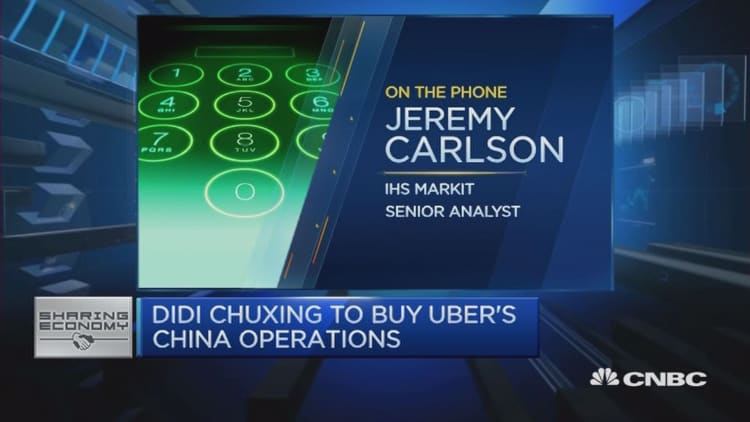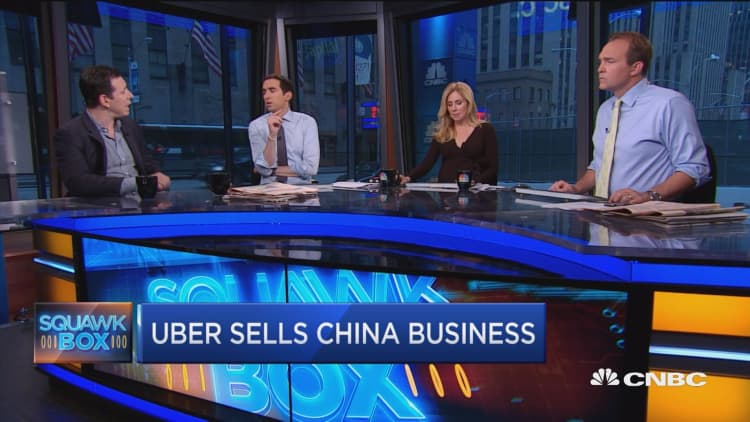Mainland ride-hailing giant Didi Chuxing and Hong Kong transport firms Kwoon Chung Bus and Sun Bus are seeking to enter the city's premium taxi market while the trade itself is boycotting the government's plan to start franchised services, according to sources.
Industry players also warned that a proposed five-year trial scheme to provide a better service for the public, subject to Legislative Council approval, might never take off due to insufficient support from lawmakers.
The taxi trade is also lobbying chief executive-elect Carrie Lam Cheng Yuet-ngor to scrap it.
More from the South China Morning Post:
Why the Xi-Trump summit is a high-stakes gamble
Angry taxi drivers descend on Central demanding premium franchise scheme be scrapped
Hong Kong taxi trade calls for more help as it launches device to rate drivers
Sources said the sector had already secured the support of the city's three big political parties – the Democratic Party, Democratic Alliance for the Betterment and Progress of Hong Kong (DAB) and Liberal Party – to vote down the scheme. DAB lawmaker Ben Chan Han-bun and the Liberal Party's Frankie Yick Chi-ming have openly thrown their support behind the taxi trade.
"Our assessment is that the franchised taxi scheme won't get through Legco," one source said. "Also, it is said that current transport chief Anthony Cheung Bing-leung won't stay on, so his successor may have a change of mind. We are also seeking a meeting with Carrie Lam."

Taxi operators have been up in arms over the government's proposal to put an additional 600 franchised taxis on Hong Kong roads. Three franchised operators would run the premium service, charging fares up to 50 per cent more than regular taxis. They would not be required to pay for a taxi licence, which currently sells for about HK$6.5 million.
The controversial proposal has been prompted by long-running complaints about poor services and bad driver behaviour such as refusing a hire or overcharging. But taxi operators are complaining that the competition will be unfair and put their livelihood at risk.
Despite the roadblocks, Didi Chuxing said it was looking into the possibility of becoming one of the new franchised operators.
"We believe that innovations will revolutionise the efficiency and service quality of the taxi industry, as well as improve taxi drivers' income," the mainland company said. "A transportation system plugged into new data technologies is essential to the concept of a smart city."
The Alibaba Group, which is the owner of the South China Morning Post, is a shareholder of Didi.

Kwoon Chung Bus chief executive officer James Wong Cheuk-on said his firm was definitely interested in the scheme. The firm provides franchised bus services on Lantau Island and private-hire services involving 300 cars for hotels and tour agencies.
"We don't have a definite answer yet but we'll consider the scheme. So far this scheme is still at its early stage with a lot of details remaining uncertain. If this scheme proves to be a viable project, we'll seriously consider bidding for a franchise since it is related to our public transport business," he said.
However, Wong also agreed that the introduction of franchised taxis would not help resolve the existing problems of the taxi trade such as rude cabbies, overcharging and refusing hires.
"The system governing local taxis is very old so I understand why the government would like to introduce new elements to the taxi market. But this won't help raise the service standards of existing cabbies," he added.
Sun Bus was not available for comment.
Democratic Party chairman Wu Chi-wai said since the scheme only allowed three franchise operators each running a fleet of 200 taxis, it was virtually encouraging a monopoly.
"Basically we don't think this franchised scheme can address the problems of the taxi trade. If the government refuses to amend the scheme, such as lowering the threshold to allow more market players, our party cannot support it," he said.


